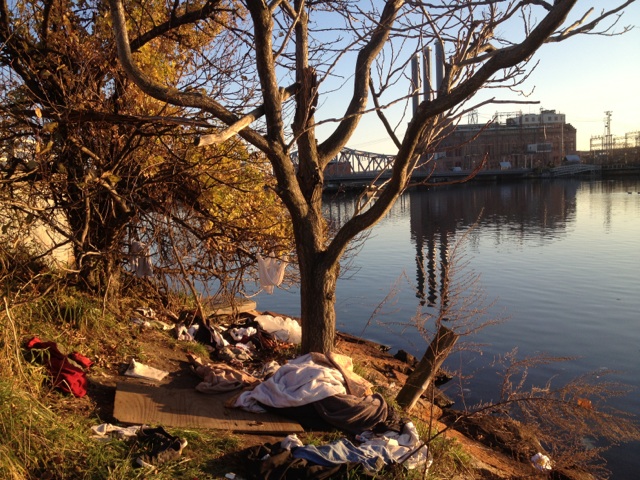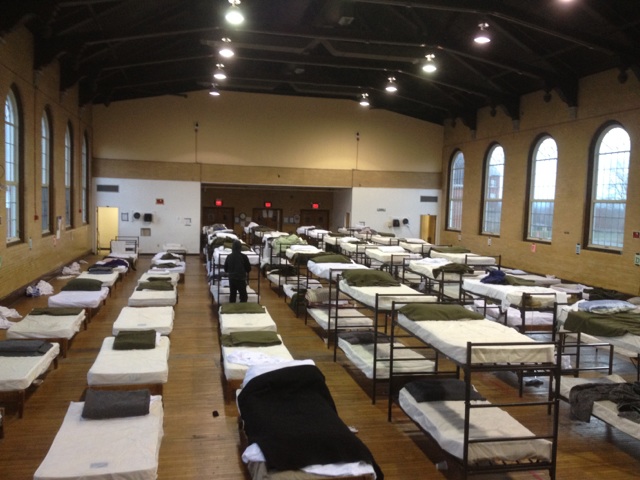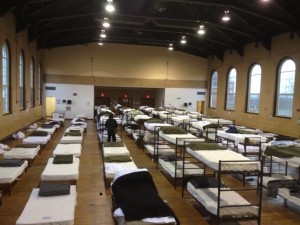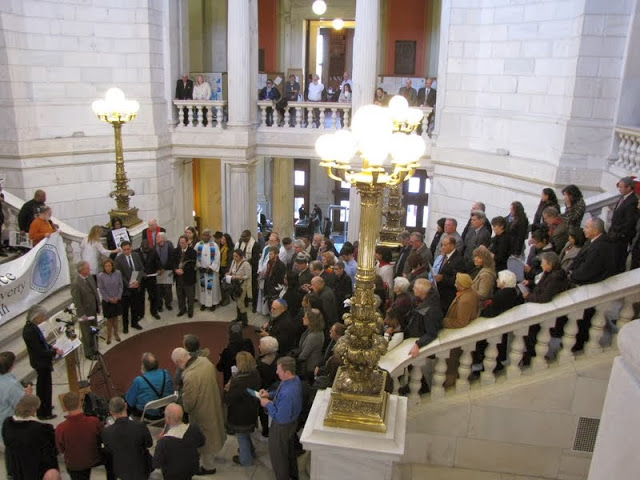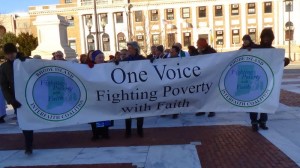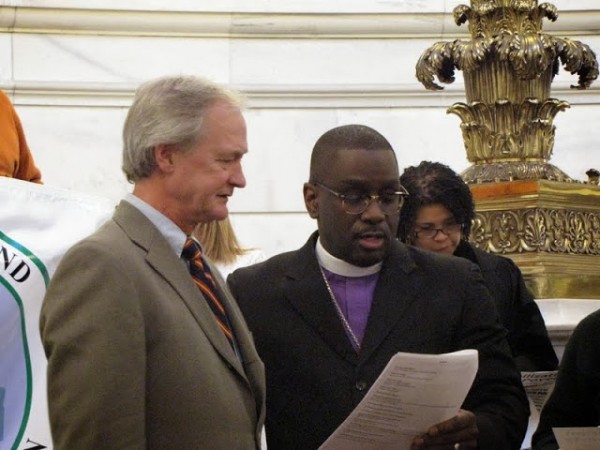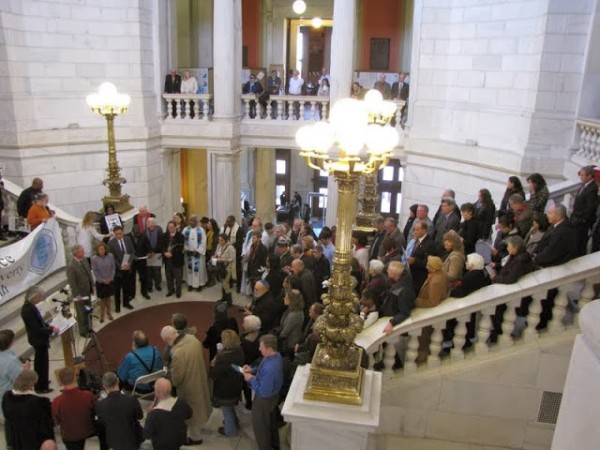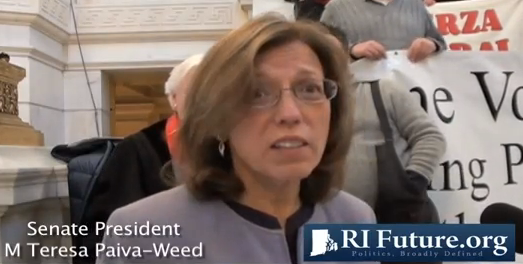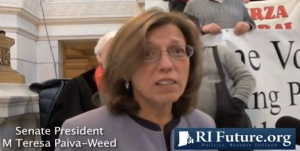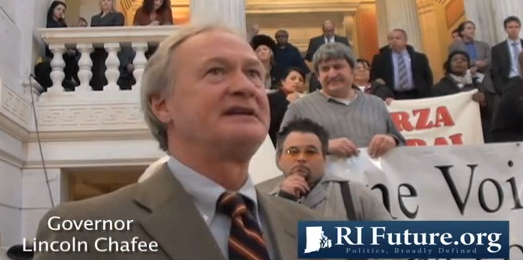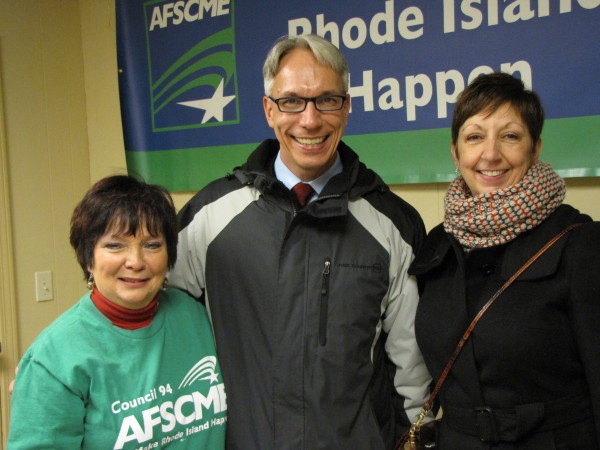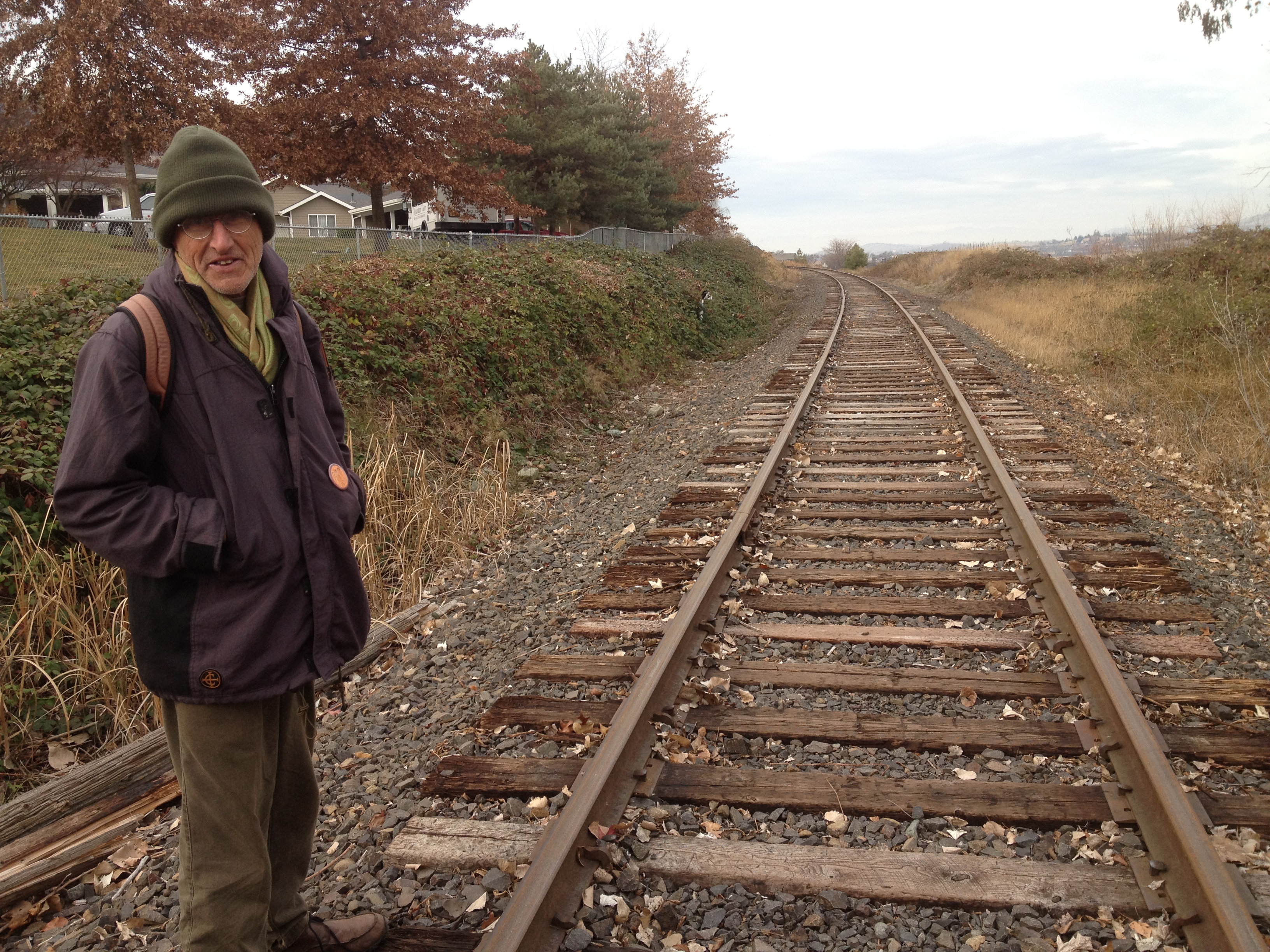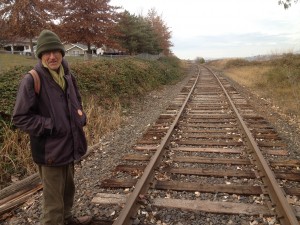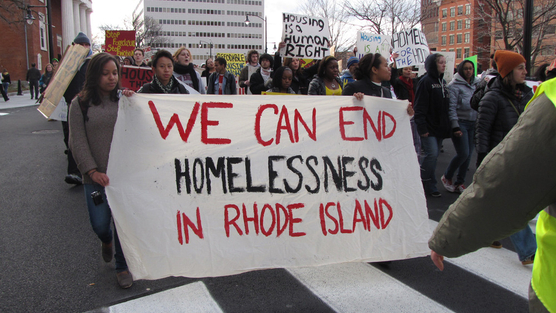 Winter Count is an attempt to quantify the number of homeless in Rhode Island who will need beds during the extreme cold of the coming winter.
Winter Count is an attempt to quantify the number of homeless in Rhode Island who will need beds during the extreme cold of the coming winter.
My friend and I arrived at Burnside Park and joined a group by the fountain. We were assigned to a group of seven people, one of whom, Saul, had done this kind of work before. Saul is about my age. Along with Saul, my friend and myself there were four Brown University students in our group. We ranged in age from 18 to 87, representing both sexes (five men, two women) and were racially diverse. We took a bus to South Providence (a pretty rough area, by my effete East Side standards) and covered the area from the McDonald’s restaurant, through the cemetery that divides Broad St from Elmwood Ave and then up Broad St (and through most of the side streets on either side) up to and around St. Joseph’s Hospital.
After getting our bearings we entered the graveyard and met our first homeless persons. There were three people there preparing to bed down for the night. Our instructions were to be casual, courteous and not force an engagement with people who would rather not talk. We gently explained who we were and what we were doing.
One of the homeless men referred to us as “church people” and immediately associated us with helpful people who have given him food and blankets in the past. Since I was still learning and observing at this point, I simply let Saul do most of the talking. He was gentle, direct and sincere. I was very impressed by his manner and his evident compassion. We talked with the small group of homeless, made sure they did not have any pressing, emergency needs (aside, I suppose, from the fact that they had no shelter and were preparing to sleep overnight in an open graveyard) and entered into our tally sheet notations for two adult males and one adult woman.
It was more difficult than I imagined it would be, and more emotional than I anticipated to move on and search for more homeless. The three I initially met that night ran the range from talkative and appreciative of the interest our group showed to complete silence in our presence. The woman complained of multiple things, but her language was slurred by alcohol and she was confused, difficult to understand and very sad. The three had the clothing they wore, blankets, and some food and alcohol, as nearly as I could tell. They warned us away from the darker parts of the graveyard where people could not be trusted to be nice.
We next went into some of the darker parts of the graveyard. Here I met people in a place so dark I would never recognize them in the light. There were four men and two women, all in various states of homelessness. One man said that the homeless were not well represented on the streets because many had taken to squatting in abandoned, foreclosed and boarded up buildings. Though in our travels we met some who live this way, we of course could not trespass into buildings but only view from the outside for possible signs of habitation. The rules stated that we were only allowed to count homeless persons we actually saw ourselves.
The man we talked to called these squatter houses “abandominiums” and he explained how even people with social security checks who could afford a monthly apartment rental were prevented from securing apartments because they could not manage the first and last month’s rent or first month’s rent plus security deposit. Many fail the background checks police run because of their criminal records (which might be a consequence of their homelessness).
A young woman was with the group. It was impossible to tell her age. She claimed to be eighteen but could have been as young as fourteen. It was simply too dark to tell.
On the street and elsewhere we met with fourteen homeless that night. Many had long, rambling, incoherent stories to tell. One man talked about having his ID stolen by men in a white truck which means he’s in trouble with the Tennessee branch of the FBI. Another simply smiled and smoked and spoke in a raspy voice that vanished when he opened his mouth. I could not understand his words but merely nodded.
We met one man I had heard of before. I do not want to violate his privacy, so I will only say that I almost recognized his voice and when he said his name I knew him from his job in Rhode Island media. This man is homeless now, and alcohol and perhaps mental illness have rendered his stories and anecdotes nearly incomprehensible to understand.
Eventually we covered our area and made our way back to the bus stop. We turned in our results and I went home to my house and warm bed. I found the experience to be profound and had much to consider.
First, there is cultural power in religion. We were called “church people” by one of the first homeless men we met, and though he could not tell our faith or much else about us, the term “church people” was like a code word for “safe.” We were safe to talk to. We were not cops, we were not other homeless persons, and we were not people interested in causing harm. It occurred to me that seeing a group as diverse in age and race as we were, that one of the best assumptions as to why we came together to do something good for other people is that we are in some way religious.
Later in the night a man asked us if we believed in God and I was silent on the question, because it was important to this man that we believe in God for some reason. It was a way he knew to ascertain if we could be trusted. Many in my diverse group were religious. The students answered easily that they were believers, two of them were Catholics. The man asked where they went to church, which is the kind of personal information we were told not to give out about ourselves, but the student who answered mentioned a Catholic church in his home state of Louisiana, so I did not think this too much of a breach.
This assumption, that people do good because of their religion is not just a false cultural assumption. In the very real world the homeless people we met last night live in, religious people are pretty much the only people they can trust. The government might promise shelter, food or money, but political whims or complex procedures to determine qualifications for help can quickly and confusingly deprive someone of the promised care.
Religious people can be counted on to deliver blankets, food and other amenities without conditions and without judgment. I know how ironic this sounds. We think of religious people as offering help and support in payment for listening to their sermon, and I am sure such people exist, but to the people I met on the street last night, this was not their perception. They saw belief in God as a way of determining how much to trust a stranger.
I was new and still learning last night. I do not know what the reaction would be if I told a homeless person that I was an atheist. I worry that the ensuing conversation might sound like I was proselytizing my non-belief in some way. Avoiding the truth seems dishonest, but at the same time, my priority has to be the care of these people, not defending my personal beliefs.
The Rhode Island Coalition for the Homeless is not a religious organization, but there are several religious groups among their membership, including Quakers, Congregationalists and Catholics, to name just three. The Coalition’s Vision of “a State of Rhode Island that refuses to let any man, woman, or child be homeless” is an idea that transcends petty religious and political debates. This is a human problem requiring human solutions, and I am proud to have contributed, even if only in a small way.
 Affordable housing and homeless advocates boldly claim Rhode Island will be the first state in the country to end veteran and chronic homelessness as they proudly announce their selection to participate in the national Zero: 2016 Campaign; which sets to the goal to end veteran and chronic homelessness in the next two years in selected communities.
Affordable housing and homeless advocates boldly claim Rhode Island will be the first state in the country to end veteran and chronic homelessness as they proudly announce their selection to participate in the national Zero: 2016 Campaign; which sets to the goal to end veteran and chronic homelessness in the next two years in selected communities.

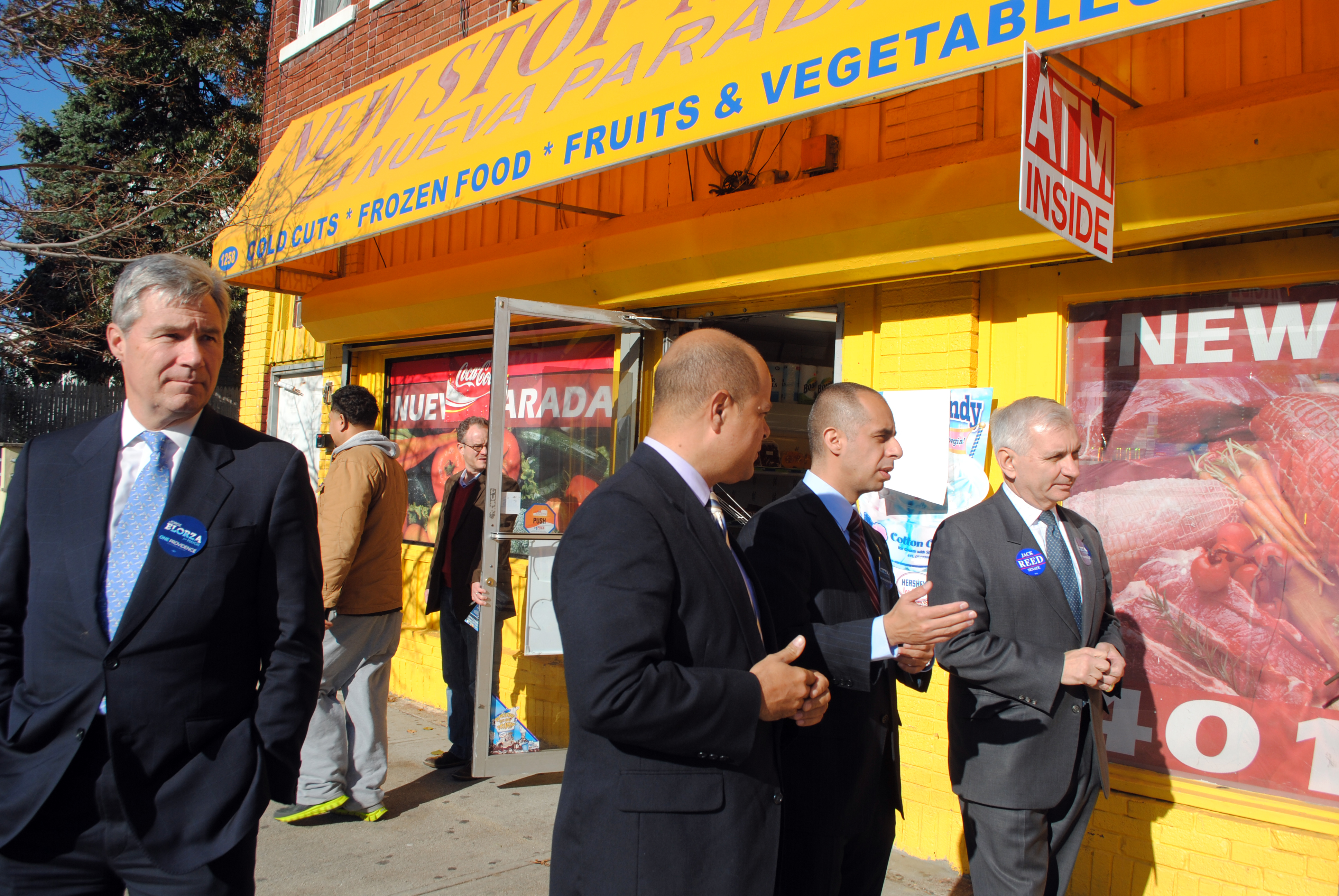
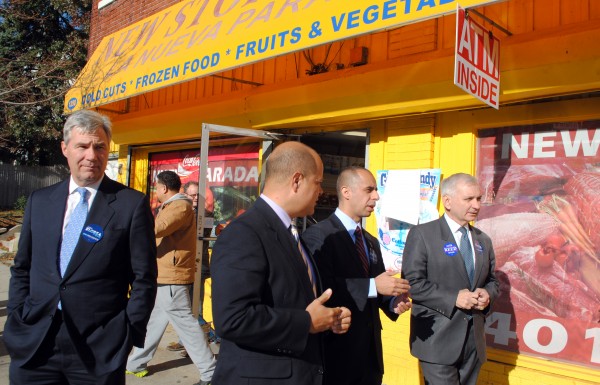 Providence Mayoral candidate Jorge Elorza campaigned on Broad St. Monday afternoon in the company of Senators Jack Reed and Sheldon Whitehouse, visiting businesses and glad-handing pedestrians along the way. State Representative Grace Dias led the tour and State Senator Juan Pichardo came along for the stroll.
Providence Mayoral candidate Jorge Elorza campaigned on Broad St. Monday afternoon in the company of Senators Jack Reed and Sheldon Whitehouse, visiting businesses and glad-handing pedestrians along the way. State Representative Grace Dias led the tour and State Senator Juan Pichardo came along for the stroll.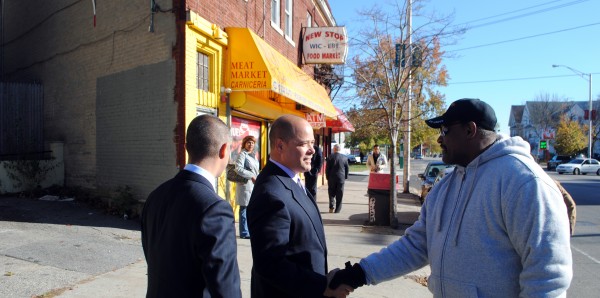 Closer to downtown Providence, also on Broad St., Buddy Cianci, the once and (he hopes) future mayor was followed by a small group of reporters as he campaigned, but I was more interested in watching Elorza take half of Rhode Island’s congressional delegation on a tour of a vibrant, yet financially struggling part of the city.
Closer to downtown Providence, also on Broad St., Buddy Cianci, the once and (he hopes) future mayor was followed by a small group of reporters as he campaigned, but I was more interested in watching Elorza take half of Rhode Island’s congressional delegation on a tour of a vibrant, yet financially struggling part of the city.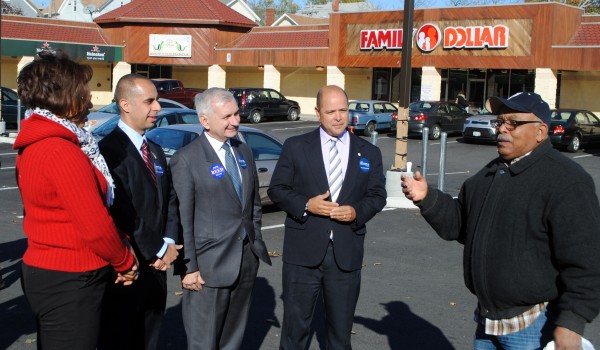 “He’s just complaining,” said Representative Dias, roughly translating the words of a man who stopped the delegation in the Family Dollar parking lot. In Spanish, the man had asked Elorza and the senators if they will be out walking in his neighborhood when his vote wasn’t needed. To be fair, Dias wasn’t being condescending in dismissing the man’s question. The political reality is that these visits are made to secure votes and listening to the concerns of voters is a secondary consideration.
“He’s just complaining,” said Representative Dias, roughly translating the words of a man who stopped the delegation in the Family Dollar parking lot. In Spanish, the man had asked Elorza and the senators if they will be out walking in his neighborhood when his vote wasn’t needed. To be fair, Dias wasn’t being condescending in dismissing the man’s question. The political reality is that these visits are made to secure votes and listening to the concerns of voters is a secondary consideration.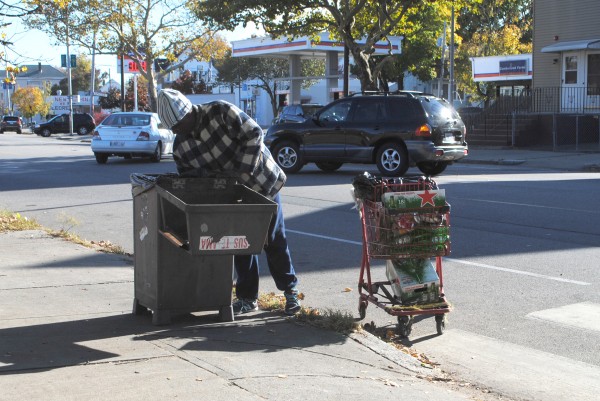
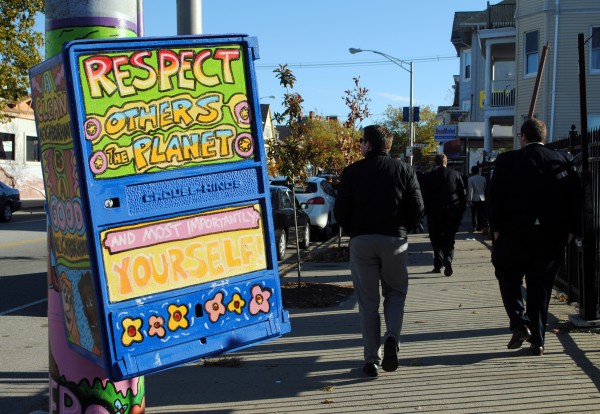 After all, the clock is ticking, and the mayoral campaigns needs the support of engaged voters, not the marginal, the forgotten and the underclass. As Elorza’s campaign passed by, the man didn’t look up from his shopping cart and trash can. There are two worlds here: the world of the political campaign and the world we live in. Rarely do these worlds communicate, which is a shame.
After all, the clock is ticking, and the mayoral campaigns needs the support of engaged voters, not the marginal, the forgotten and the underclass. As Elorza’s campaign passed by, the man didn’t look up from his shopping cart and trash can. There are two worlds here: the world of the political campaign and the world we live in. Rarely do these worlds communicate, which is a shame.



